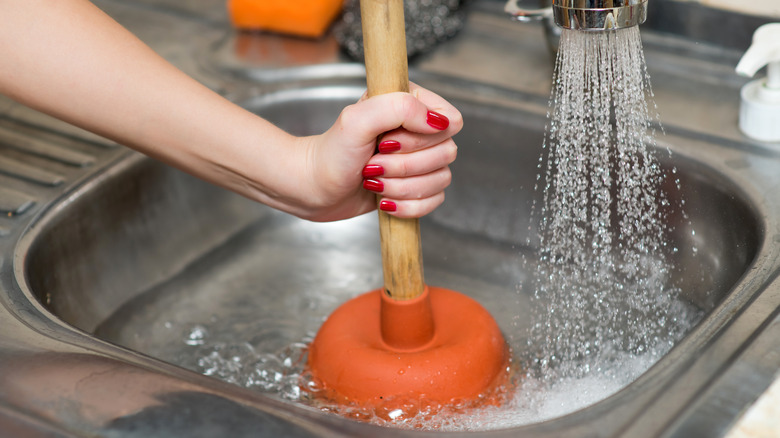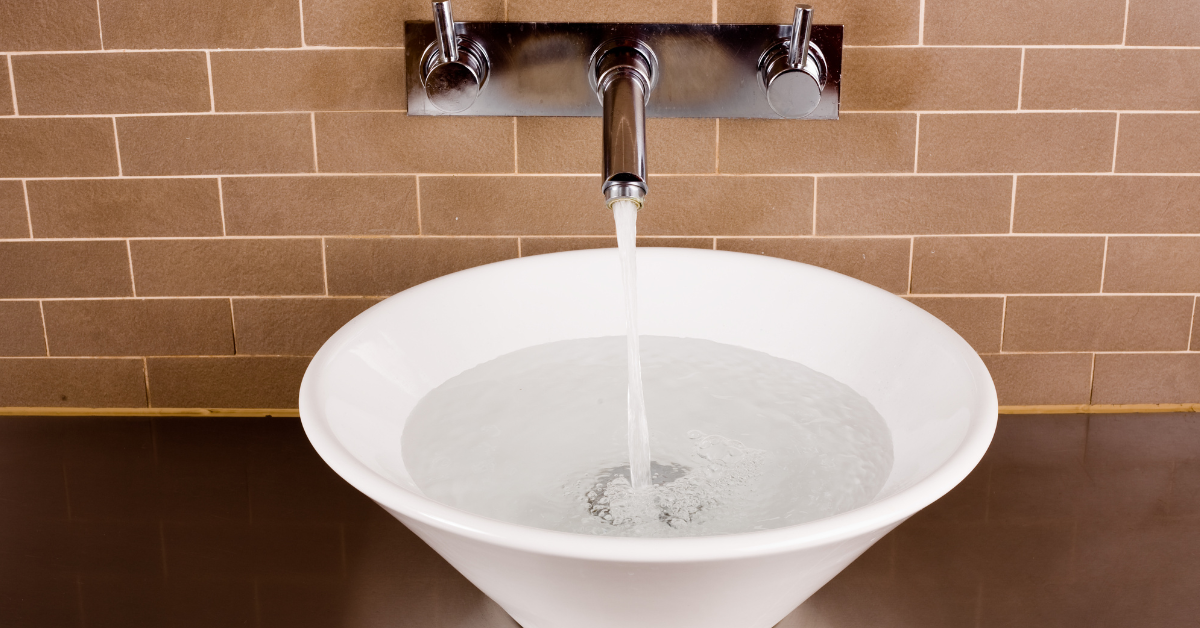Crucial Advice On How To Fix A Slow-Draining Sink
Crucial Advice On How To Fix A Slow-Draining Sink
Blog Article
Do you find yourself interested in details involving Three Common Ways to Fix a Slow Drain?

Intro
We have actually all existed: You're brushing your teeth or washing your hands, and you see the water merging in the sink. As opposed to swiftly swirling away, it remains, turning your once-refreshing early morning routine into a small swamp scene. A slow-draining sink isn't just aggravating; it's usually an indication of bigger pipes problems lurking beneath the surface area. Fortunately is that many slow-draining sinks can be taken care of with a little know-how, a couple of fundamental tools, and some persistence. All set to tackle this task head-on? Let's roll up our sleeves and dive right in.
Comprehending the Causes of a Slow-Draining Sink
Prior to you begin poking around in your pipes, it aids to recognize what could be causing the slowdown. Comprehending the source makes it easier to select the ideal solution.
Usual Offenders Behind Slow Drain
So, what's blocking things up? Commonly, it's a mixture of day-to-day particles-- assume hair, soap residue, tooth paste residue, and leftover food particles. Over time, these little bits gather and hold on to the pipeline wall surfaces, slowly narrowing the passage and making it harder for water to travel through. Sometimes, natural resource from difficult water can likewise contribute to the gunk, developing the best storm for persistent obstructions.
When is it Time to Do Something About It?
If you discover the water draining slower than normal, it's an excellent idea to interfere sooner rather than later on. Waiting also long could result in finish blockages, undesirable smells, and even pipeline damages. If the water takes more than a few secs to clear out after switching off the faucet, consider it a red flag and prepare to place on your do it yourself hat.
Tools and Materials You'll Need
The right devices make all the distinction. Fortunately, you won't require a totally equipped plumbing's van to finish the job.
Necessary Devices for Do It Yourself Fixes
A plunger is your go-to starting factor. A tiny, sink-sized plunger creates suction that can displace minor clogs. For more persistent obstructions, a drainpipe snake (often called a plumbing professional's auger) works marvels. A set of handwear covers, a flashlight, and maybe a set of protective goggles are likewise handy.
Advised Cleansing Solutions
Mild recipe soap and hot water can aid break down oily accumulation. A blend of baking soft drink and vinegar is a reliable natural home remedy, and enzymatic cleaners use an even more eco-friendly technique. Maintain chemical drain cleaners as a last resource, as they can be rough on your pipes.
Safety First: Safety Measures and Preparations
Prior to you launch into unclogging setting, think about safety. You're handling possibly dirty water and debris, so slip on a set of gloves. If you're using chemical cleaners, make certain the room is well-ventilated and follow the instructions on the tag.
Safety Gear and Workspace Setup
Put down some old towels or dustcloths around the sink area to catch sprinkles. Remove any type of things that could enter your method, like soap dispensers or tooth brush holders. Ensure you have good lighting-- order a flashlight if required.
Step-by-Step Overview to Taking Care Of a Slow-Draining Sink
Now, let's enter the nitty-gritty. This step-by-step procedure will direct you with simple techniques to recover your sink's drainage.
Action 1: Get Rid Of and Tidy the Stopper
Usually, the stopper (that little plug you lower to obstruct water) is the very first culprit. Remove it thoroughly and wipe any hair or gunk trapped around its base. Rinse it thoroughly before placing it back in place.
Action 2: Make Use Of a Plunger to Remove Particles
Got that bettor ready? Position it over the drain and give it a few firm pumps. The idea is to create suction that can loosen up any kind of clog. If you see littles debris floating up, you get on the best track.
Step 3: Try a Drain Snake or Wire Wall Mount
If the bettor doesn't work, it's time to highlight the drainpipe serpent. Carefully feed it into the drainpipe and spin as you go. You could really feel some resistance-- that's likely the obstruction. Keep turning and drawing up until you remove the blockage. If you do not have a drain snake, a corrected the alignment of cord hanger can operate in a pinch.
Step 4: Use a DIY Drain Cleanser
An all-natural cleaner made from baking soft drink and vinegar can break down recurring grime. Put half a cup of cooking soft drink into the drainpipe, followed by half a cup of vinegar. Allow it fizz for around 15 minutes, after that flush with hot water. This chain reaction frequently does wonders for minor obstructions.
Tip 5: Rebuild and Test the Sink
Put everything back together and run the faucet. Does the water now swirl away at a reputable rate? If yes, provide on your own a pat on the back. Otherwise, don't despair-- there are still a few even more tricks up your sleeve.
Different Techniques for Stubborn Clogs
Not all blockages are produced equivalent. If your sink still rejects to coordinate, take into consideration these different services.
Baking Soda and Vinegar Approach
We currently touched on this, however it deserves keeping in mind once again. This gentle, eco-friendly method is safer than chemical cleaners and usually rather efficient.
Enzymatic Drain Cleaners
Enzyme-based cleansers use natural germs to digest raw material. They're an exceptional choice if you're aiming to prevent extreme chemicals. Simply keep in mind, they may take a bit longer to function their magic.
Chemical Drain Cleansers: Benefits And Drawbacks
Chemical cleansers can blow up via tough clogs fast, yet they're not without downsides. They can create warm and fumes, damages pipes if made use of exceedingly, and present environmental risks. Utilize them moderately, and always follow the directions meticulously.
Safety Nets to Keep Your Sink Flowing
Prevention is the very best remedy. By adopting a few simple behaviors, you can keep your sink from reducing to begin with.
Regular Cleansing Routines
Wipe down the sink basin and component location regularly. Get rid of hair or food bits before they have a chance to wash down the drainpipe.
Preventing Damaging Substances Down The Tubes
Think twice before unloading coffee premises, grease, or coarse veggie scraps down the sink. These wrongdoers hold on to pipeline wall surfaces, creating blockages over time.
Routine Maintenance Checks
Set up a quick regular monthly inspection. Run hot water via the sink for a few minutes, focusing on the circulation. If it appears sluggish, act fast before it becomes a full-blown blockage.
When to Call an Expert Plumber
Sometimes, regardless of exactly how hard you try, that clog simply will not budge. That's when it's time to generate the pros.
Indications That Indicate an Extra Severe Issue
If your sink drains pipes slowly regardless of numerous attempts, or if you discover water supporting in other components (like your shower or commode), you may have a much more serious pipes problem lurking much deeper in the system.
Stabilizing DIY Initiatives with Expert Assistance
While do it yourself can save you cash and provide a feeling of achievement, there's no shame in calling a specialist. A professional plumbing can assess your entire plumbing arrangement, guaranteeing there's no underlying damage or long-term issue that could cost you a lot more down the road.
Comparing Expenses and Long-Term Solutions
Prior to making a decision, take into consideration the big picture. An inexpensive, quick fix may solve the trouble temporarily, but buying a more permanent option might conserve you cash and anxiety over time.
Considering the Costs of Do It Yourself vs. Expert Solutions
Do it yourself repairs frequently cost bit more than the price of a plunger or a bottle of cooking soft drink. Professional services, on the other hand, featured a price however might stop repetitive concerns and costly fixings later on.
Buying High Quality Fixtures and Upgrades
If your sink's style contributes to frequent blockages, it could be worth upgrading to higher-quality components or altering the pipes design. Consider this a financial investment in your home's capability and convenience.
Conclusion
A slow-draining sink can seem like a minor irritability, yet it's commonly an indication that your plumbing needs a little tender loving care. By understanding the origin, utilizing the right tools and methods, and devoting to straightforward safety nets, you can maintain your sink flowing easily. And when all else stops working, never ever be reluctant to call in an expert-- your home's pipes deserves the investment in care and maintenance.
Three Common Ways to Fix a Slow Drain
Baking Soda Method
Boil a full pot of water. Measure out cup of baking soda and pour it down the drain. Then take cup of the magical cleansing substance known as white vinegar and drop that down there too. Allow the mixture to fizz in the drain for five minutes as the vinegar and baking soda combine. Now dump in that whole pot of boiling water. This combination of cleaning substances should clear out anything that is causing your sink to drain slowly. If it doesn t...
Zip-It
If the baking soda method doesn t clear out your drain, it may be because a significant amount of hair and/or other debris has collected there and you need to remove it. Purchase a Zip-It tool at any home improvement or hardware store and insert it into your drain. It will catch any collected hair or debris that s blocking the flow of water. Pull it out. If it s got a big clump of hair, etc. on the end, you ve probably got your culprit.
Drain Cleaner
If these methods don t work, there is the standard drain cleaner that you can also buy in a hardware store or even your local grocery store. It s better if you can use a household solution, but these drain cleaners often work in a pinch. They re very simple to use. You generally just dump them in your drain and wait. If even this method is not effective, it may be time to call the plumber.
https://www.mrrooter.com/oneida/about-us/blog/2017/july/three-common-ways-to-fix-a-slow-drain/

I stumbled upon that article on while doing a lookup on the search engines. If you enjoyed reading our blog posting plz do not forget to pass it around. Kudos for your time. Revisit us soon.
Request Estimate Report this page